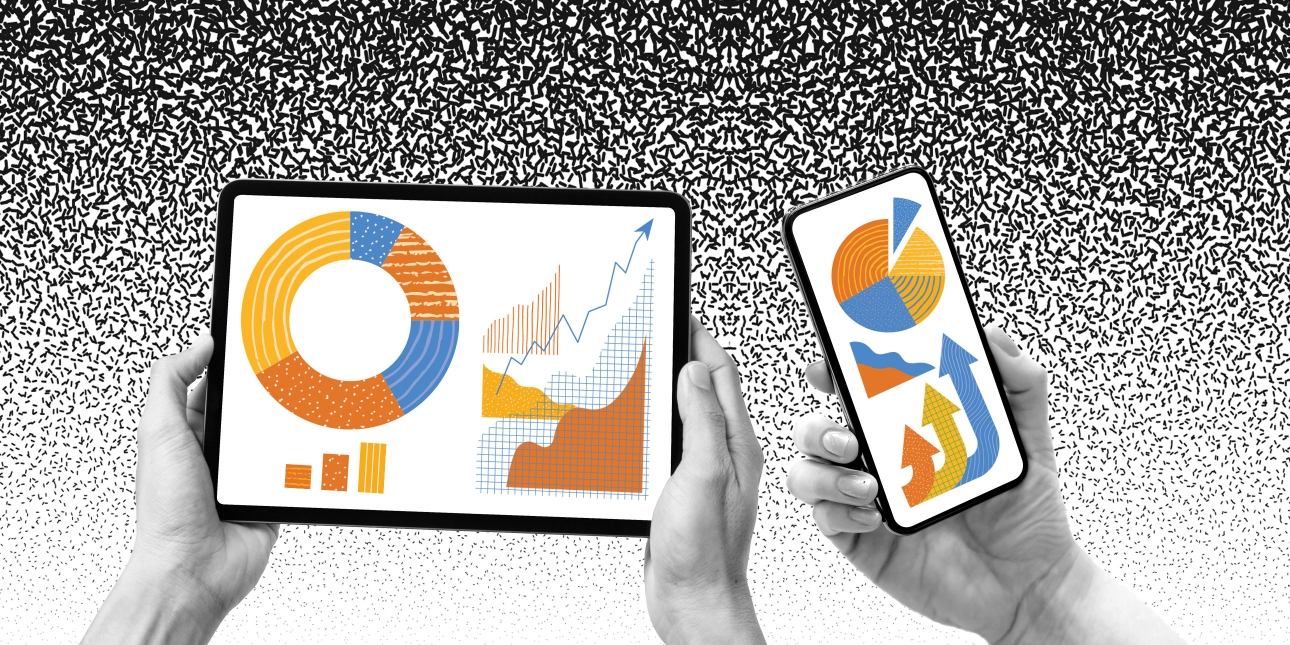Google Analytics is changing on 1 July: are you ready?
Google Analytics is changing on 1 July to the flashier Google Analytics 4. But if you don't act before then, you could end up losing all your dashboards and data, reports Christian Koch.
Over the last 15 years or so, Google Analytics has been a godsend for the PR industry, giving them a foolproof way to measure the success of a campaign. For all those clients who demand to see a return on their investment, collating Google Analytics data has given them the chance to see exactly how many people engaged with that article on the Financial Times website, or whether that interview with Caravan magazine saw an uptick in curious caravanners visiting the client's homepage - all presented in easy to understand graphs and infographics.
CIPR trainer Andrew Bruce Smith, who is delivering a course on Google Analytics in June, has a story which neatly illustrates the power of Google Analytics for PRs.
Smith remembers listening to the Radio Four Today show one morning, where John Humphrys was interviewing a client. "At 7.25 am, while John Humphrys was interviewing the CEO, I put my Weetabix to one side and started watching the real-time Google Analytics. Within the space of three minutes, 500 people had visited the client's website, with Google Analytics showing where these visitors had come from. At the time the client was looking at investors, and the PR was able to show them they had visitors from the likes of Deutsche Bank's corporate network address also searching for investment information."
However, on 1 July the Google Analytics that PRs have known and loved for years will morph into Google Analytics 4 (GA4), which will have a raft of new features. Unless you act now, you could end up losing all the data you've collected, while those fancy, customised dashboards will disappear.
"Google has designed GA4 so it's more for people who want to analyse," says Smith. "If you're happy looking at numbers in a table, it's great."
I'm already happy with Google Analytics. Do I need to switch over?
Put simply, yes. If not, you could lose all the data you've amassed on Google Analytics so far, and you'll need to learn how to recreate all those dashboards and reports from scratch.
Google is now giving users until July 2024 to export the data (previously they said they would only provide three months grace). If you do nothing, all those snazzy graphs, pie charts and maps showing your website is big with people in the Faroe Islands will be gone forever.
1 July is only a few weeks away. Have I left it too late?
Whisper it quietly but Google has provided beta access to GA4 since 2018. Says Smith: "[Google's] argument is ‘You've had five years to get used to this - don't whinge to us now if we're turning off the old version. It's not like we're giving you a week's notice."
Still, if you haven't updated the system yet, you're far from alone: Smith cites a recent report from early 2023 that showed 70 per cent of websites hadn't switched over.
"[Google's] argument is ‘You've had five years to get used to this - don't whinge to us now if we're turning off the old version"
What do I need to do?
The good news is most people won't need to do anything. If you haven't already created a GA4 property, Google will create one for you based on your Google Analytics settings.
But if you are setting up a GA4 property yourself, you will need to add the GA4 tracking code, which can be found in your Google Analytics account.
Smith explains more: "You - or somebody - will have to take the tracking code for the new GA4 property and install it correctly to your website or client's website in order to capture data from visitors. Without this tracking code, you'll get no data. Simple as that."
The good news is Smith says the process is "pretty straightforward - a copy-and-paste job".
Google has a step-by-step guide here.
What are the new features of Google Analytics 4?
A new interface which may require PRs to do some work
Smith says: "The interface of GA4 is very different. Before, you had around 120 templates and pre-built reports. If you go into GA4 expecting to find all these lovely pre-built reports now, then - sad face emoji - they're not there anymore. Instead, you'll find 10 basic pre-built reports because Google is encouraging users to think about what their reports look like. For some PRs, there might be some more effort (or pain, depending on how you view it) in thinking about this. But the tools are readily available within GA4 to help you produce full-customised reports. That's the first big shock."
An events-centric data model
Smith says: "The Google Analytics most PRs use is a page-view-centric data model [prioritising page views]. GA4 is an events-centric data model. Events are, broadly speaking, any non-page view, such as users clicking the ‘Play' button on a video or downloading a PDF. In the old version of Google Analytics, these ‘events' were kept separate. It was a painful process tracking and measuring them: you had to use Google Tag Manager or add a tracking code, which typically required the help of a developer.
With GA4, if you want to track how many people are watching a video on a website, you don't have to set anything up - it's all done for you. It'll also help you see data on who has downloaded your PDF, what pages they go to and how long they spend reading it."
Enhanced real-time analytics
Smith says: "GA4 will tell you how you've got 50 people on the client's website right now, the pages they're looking at, how they arrived at your website, their location plus the tweet they clicked on to get here."
Explorations reports
Smith says: "Explorations is a collection of techniques that are more advanced than standard reports. Once you wrap your head around them, Explorations are pretty cool because they allow you to uncover deeper insights about users' behaviours."
Outbound clicks
Smith says: "Bizarrely, outbound clicks [an external link that takes visitors away from your website] were not automatically tracked on Google Analytics before. But GA4 has outbound clicks all set up."
Google Looker
Smith says: "If you want to share your reports, Google Looker is pretty nifty. It allows you to build some sophisticated reporting dashboards, giving you a far broader visualisation palette than previously."
Want further help?
The CIPR has a Google Analytics course taking place remotely on 6 June, which will give an insight into how to use Google Analytics to measure and prove the value of PR and social media activity. The course will also help attendees understand the key differences between GA3 and GA4, and how to make the switch to set up a GA4 account.
.jpg&w=728&h=90&maxW=&maxH=&zc=1)

